Five legal mavericks share their unique career journeys.
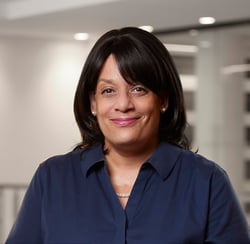 J. DANIELLE CARR
J. DANIELLE CARR
Director of Diversity, Equity & Inclusion, Lowenstein Sandler
I thought I would be a lawyer my entire career. That all started to change during my second year of practice at a big Chicago law firm when my roommate and I, after earning a reputation for hosting great house parties, decided to form a group along with six other friends called Collage and ventured into the business of party promotions. The Collage events were relatively successful, but then, while on a trip to San Diego with a group of friends, I attended a party called First Fridays, which was a networking and socializing event for African-American professionals, held on the first Friday of each month in alternative venues to keep it fresh. We were all sold on the concept, and one friend took it to Washington, D.C.; another launched the event in Los Angeles; and I followed suit by hosting the party in Chicago. This was the early ’90s and there weren’t a lot of avenues for African-American professionals to get together, so it was the perfect niche.
After three years with a large firm, I shifted gears and went to work at a minority-owned law firm. This was a unique experience and absolutely wonderful. All the while, I continued hosting First Fridays and it became a lucrative secondary source of income. When the opportunity presented itself to do a two-year contract with the city of Chicago working on a disparity study, I left the firm to go out on my own as a solo practitioner. During the disparity survey, my job was interviewing minority business owners. I got to learn about many of the hurdles the owners had to overcome in order to do business; most of these hurdles were not faced by non-diverse business owners. That was my real first exposure to diversity issues outside of the law firm setting.
Fast forward a little: There was an organization in Chicago called the Chicago Committee on Minorities in Large Law Firms. When a position became open to serve as the organization’s executive director, several people called me and told me about it because they knew I had worked in one of the largest firms in Chicago and that I knew a lot about hurdles faced by most, if not all, diverse associates. I also knew how to coordinate successful events, which was an important function of the role. The six years I spent with the Chicago Committee gave me a real deep dive into doing diversity and inclusion work and laid the foundation for all that has followed.
While I always wanted to be a lawyer, I think I was born to be a diversity professional. There are so many different things about my background that just reek of diversity. My mother is white; my dad is black. We’ve practiced Christianity and Judaism. My mother has been married to a Native American, a white guy and a black guy. My brother is married to a Native American. Dinner around my table is like a melting pot.
There are so many people out there that need a voice, and that’s what I try to do. I had a professor who said that the key to success, to happiness in life, is to find a job where you would go and you wouldn’t have to get paid. If I hit the lottery tomorrow, I would still go to work because I love what I do. And it’s just icing on the cake to be at a law firm among a group of people who “get it” and are onboard with taking the firm to the next level.
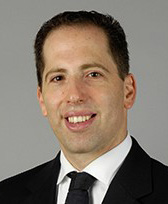 Tuvi Keinan
Tuvi Keinan
Partner, Brown Rudnick
I took time out of legal practice and worked as an investment banker at Morgan Stanley for many years. During that time, I discovered that a lot of the smart ideas for innovative pitches to clients came from lawyers yet it was the investment banks that were cleverly repackaging those ideas and crossing them with sources of capital. I also discovered that many private equity lawyers in finance do not have a good grasp of higher math. It’s a criticism that often gets leveled at lawyers, but it does have some real implications.
In my role as the pan-European CFO for Morgan Stanley Real Estate Investing, it was staggering to see how very few lawyers understood the complex math calculations and were truly commercial. This was one of the reasons I was interested in returning to the law. A lot of people thought I was crazy because it’s very unusual for a lawyer to become a banker. But it’s almost unheard of for a banker to go back and become a lawyer and de facto go from being the client to the service provider.
I joined Brown Rudnick to build their private equity practice. Brown Rudnick has a long tradition of acting holistically for clients, which is what attracted me to the firm. Historically, lawyers could add value by introducing business opportunities to their clients and as a result of that gain legal work, but they were never able to charge for that work because of the broker-dealer rule in the U.S.
However, around 2009, the law changed in England and Wales and law firms were allowed to become multidisciplinary partnerships, meaning law firms were allowed to conduct other activities that were ancillary to their pure legal fee earning. Brown Rudnick wanted to hire someone to start the initiative of being able to lead a legal transaction as well as broker deals, and broker the debt associated with those deals—a full service offering from origination to documentation, execution and post completion.
I accepted that impossible mission, but I had no resources. I had the vision, but I had no department. I was asked to create a private equity practice that served the U.S. family offices and funds that we represented in Europe and to find and create deals or match deals to clients. The challenge was to figure out how to get business opportunities and to execute them without having a team.
It was an evolution of hiring other partners who were like-minded and those partners supplementing the puzzle pieces we had. We started off by hiring a partner who focused on finance, then we added another person focused on leveraged finance. Then we added private equity corporate, real estate hospitality expertise, distressed financing and secondary debt trading. With every new hire we made, two plus two equaled five because not only did we bring in someone that had their own business, but together we were able to combine forces and originate more business respectively. I built a structure where everybody complemented each other’s practice and we were all moving forward together as a multi-disciplined team.
It was very much a step-by-step process, but fast forward to today, when we have 23 people on the team.
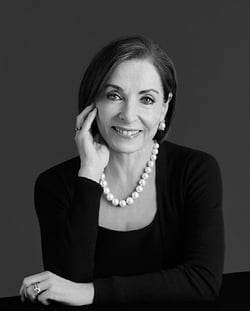 Sara Moss
Sara Moss
Vice Chairman, Estee Lauder Companies Inc.
When I was growing up, I didn’t think a career in the law was possible. At that time, women in the law were few and far between, and there were no role models for me. I became a teacher and taught high school history for three years. During that time, I became involved in the women’s rights movement and was ready to take on the challenge of law school. I chose NYU Law because it had significantly more women students than other law schools and had already developed a strong women’s network.
After graduation, I served as a law clerk for United States District Judge Constance Baker Motley, the first African-American woman on the federal bench. After my clerkship, I went to Davis Polk & Wardwell. At Davis Polk, I learned the highest standards of practice, and I had the good fortune to work with litigation partner Robert “Bob” B. Fiske Jr.
A year after I joined the firm, Bob Fiske became the U.S. Attorney for the Southern District of New York and encouraged me to apply. I became one of the few women assistants in the Criminal Division of the U.S. Attorney’s Office. Standing up in court and persuading a jury to convict beyond a reasonable doubt was the greatest challenge of my career, and my legal skills grew tremendously in that position.
I returned to Davis Polk after the U.S. Attorney’s Office. I was expecting my first child at the time, so I worked out a part-time arrangement with the firm. A few years later, I became a litigation partner at the newly formed Howard Darby & Levin (now merged with Covington & Burling).
In 2003, I came to The Estée Lauder Companies as general counsel. Last year, I was promoted to become the company’s first vice chairman. In this role, I advise the board, senior management and the Lauder family. I also have the privilege of developing our Gender Equality Strategy and helping to lead our Women’s Leadership Network. Our company was founded by an incredible woman, Mrs. Estée Lauder, and we have a global workforce that is 84 percent women. We want to lead in giving women unparalleled opportunities around the world. So, in many ways, I have come full circle. Women’s leadership has been a driving force throughout my career, and I feel very lucky to be able to focus on this in my current role as vice chairman.
None of the steps in my career have been planned. My path was not linear; I took opportunities that were exciting and challenging—and all of them helped to build my career. With each step, I learned how to take risks and meet obstacles with grit and resilience. Also, significantly, at each step I looked for women who would support and encourage me. In law school, I found a group of strong women who became good friends. At Davis Polk and the U.S. Attorney’s Office, I joined the women’s basketball teams to enable me to build relationships with the few other women in those offices. Many of these women remain among my closest friends.
My advice to any lawyer or professional is to find what you love and work hard at it. To be successful, your work needs to be fueled by passion. It is never too late to find what you love. Also, find a community to support you. It will add great joy to your work and to your life.
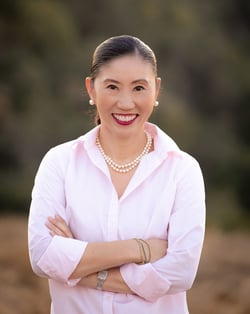 Mary O'Carroll
Mary O'Carroll
Head of Legal Operations,
Technology and Strategy, Google Inc.
I always knew I wanted to go into business. There was something that just seemed glamorous and exciting about that world and Wall Street. In college, it seemed like the clear way to enter the business world was to start in investment banking because it would expose me to different industries and different types of companies and problems. I transitioned into strategy consulting because I liked the idea of helping companies grow or solve their problems. I got to dive in deep with different companies and clients and learn what made them successful, consult with them on the challenges they were facing and then help them come up with solutions. The problem I found was that once I figured out what solutions to propose, it was time to move on to the next client project. I found myself wanting to stick around and help solve these challenges and actually be the one implementing the solutions.
I started looking to go in-house, and I kind of fell into a role at Orrick. I joined Orrick, working at first for the CFO, then ended up very quickly shifting to reporting to the COO and working on profitability analysis. This role involved everything from figuring out matter and practice group profitability to advising the partners on how to run the business side of things such as pricing and staffing matters. I loved it.
Then I got a call from Google. They said, ‘We know you do operations at this law firm and we’d love to have you come and do operations in our legal department.’ Google had probably 200 people in the legal department at the time. And I figured that would just be like running a small-sized law firm within a company. I really loved my job at Orrick, but I’ve always been interested in working at a place that was very innovative—and Orrick was a very innovative firm—but you don’t get more
innovative than Google.
I found out very quickly that in-house legal department operations were very different from the law firm. Unlike the firms, we had no access to a wealth of data and we faced different types of challenges to solve. So, I started building the legal department operations from scratch and it all kind of snowballed from there.
Nobody knew what legal operations was at that time, so the first thing that I started focusing on was trying to figure out if we were getting good value out of the money we were spending with outside counsel. That led to figuring out what we should be using law firms for, who are we using, how much and all those questions. We started figuring out what data we needed to answer those questions and building pipelines to collect it. Over time, the role also expanded, not just to financial and outside counsel management, but systems and tools, knowledge management, process improvements, strategic planning, and so much more.
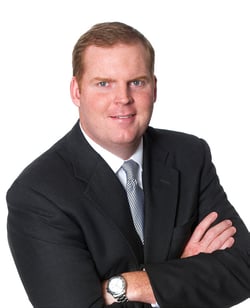 William O'Neil
William O'Neil
Partner, Winston & Strawn
Growing up, I was always interested in both the law and politics. My dad was a lawyer—he prosecuted race discrimination cases for the Department of Justice under the Nixon administration before leaving the practice of law for a career in politics. He is the smartest guy I know, and I wanted to be like him. I obtained my undergraduate degree in political science and worked for Senator Luger on Capitol Hill before realizing that I did not want to pursue a career in politics and instead wanted to focus on becoming a lawyer.
When I accepted my offer to join Winston & Strawn as a first-year associate, I was torn between the M&A group and the litigation group. The art of the deal was really, really fascinating to me. I felt like a piece of me was a dealmaker by nature. I enjoyed that piece of it, but I felt like a bigger piece of me wanted to stand up and argue and try cases. I wanted to take a run at trying to be more persuasive than my opponent—I get a rush from standing up and trying to do that. So, ultimately, I chose litigation. I have since devoted my career to developing and honing my skills as a trial lawyer.
As a trial lawyer, the greatest challenge I faced was losing a jury trial I believed we were going to win (or at least, I felt we deserved to win). After winning the first seven trials I took to verdict, the thought of losing was starting to seem improbable—particularly on a case I felt my client deserved to win. Now, with a few years of additional perspective, I realize that if you put yourself in the arena enough as a trial lawyer, losing once in a while is inevitable. I have learned from one of my mentors, Dan Webb, that the better you get at your craft, the tougher the assignments you get. Most clients don’t hire Dan Webb to try cases that any lawyer can win; they hire him to try cases that virtually no one else but him can win.
Everything came full circle for me about 10 years ago when I chose to concentrate my litigation practice on M&A disputes. Now, I primarily work with private equity firms and strategic acquirers on post-closing disputes. I am equal parts business counselor and zealous courtroom advocate. I personally find this to be a hugely fulfilling marriage of a subject matter that I love (deal-making) with a task that I love (advocacy).



